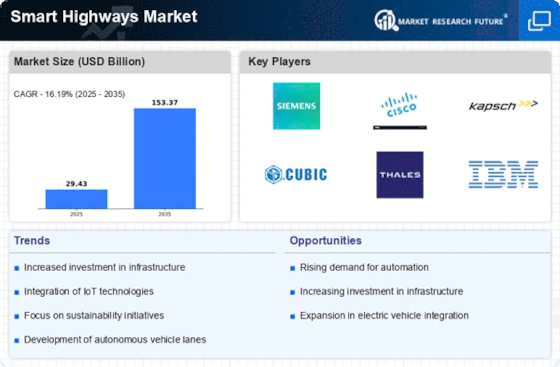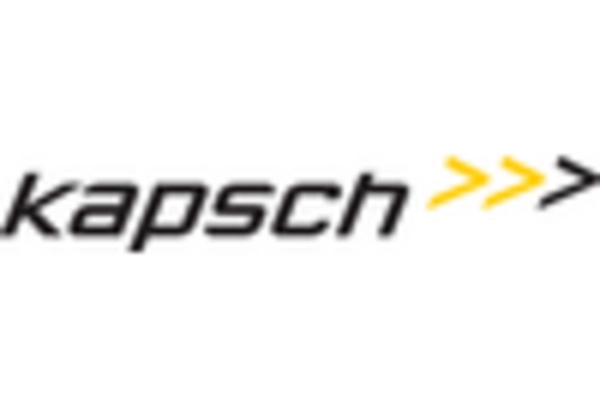Market Trends
Key Emerging Trends in the Smart Highways Market
The Smart Highways Market has been experiencing significant growth in recent years, thanks to advancements in technology and the increasing need for efficient transportation systems. Smart highways, also known as intelligent highways, are equipped with various sensors, communication devices, and digital infrastructure to enhance safety, reduce traffic congestion, and improve overall road efficiency.
One of the key market trends in the Smart Highways industry is the integration of Internet of Things (IoT) technology. IoT enables the seamless connectivity of devices and sensors embedded in the highway infrastructure, allowing real-time data collection and analysis. This data can be used to monitor traffic flow, weather conditions, and even detect accidents or hazards. By leveraging IoT, authorities can make informed decisions to optimize traffic management and ensure a smooth driving experience for commuters.
Another significant trend in the Smart Highways Market is the implementation of smart lighting systems. These systems use energy-efficient LED lights that can adjust their brightness based on real-time traffic conditions. By dimming or brightening the lights accordingly, smart highways can save energy and improve visibility for drivers, especially during low-traffic hours. Additionally, these lighting systems can also incorporate sensors to detect vehicles, pedestrians, or cyclists, further enhancing safety on the roads.
The emergence of autonomous vehicles has also played a crucial role in shaping the Smart Highways Market. As self-driving cars become more mainstream, highways need to adapt to accommodate them. Smart highways can provide the necessary infrastructure to support autonomous vehicles, such as dedicated lanes, intelligent traffic signals, and vehicle-to-infrastructure communication systems. These advancements enable a smooth and efficient flow of autonomous vehicles, reducing accidents and optimizing traffic patterns.
Furthermore, sustainable transportation is a growing concern, and smart highways are addressing this trend as well. With the integration of renewable energy sources, such as solar panels, smart highways can generate clean electricity to power infrastructure and charging stations for electric vehicles. This not only reduces carbon emissions but also promotes eco-friendly transportation options.
Lastly, the Smart Highways Market is witnessing increased government initiatives and investments. Governments worldwide are recognizing the potential of smart highways to improve transportation systems and are actively promoting their development. These initiatives include funding research and development, implementing pilot projects, and collaborating with private sector entities to accelerate the adoption of smart highway technologies.



















Leave a Comment